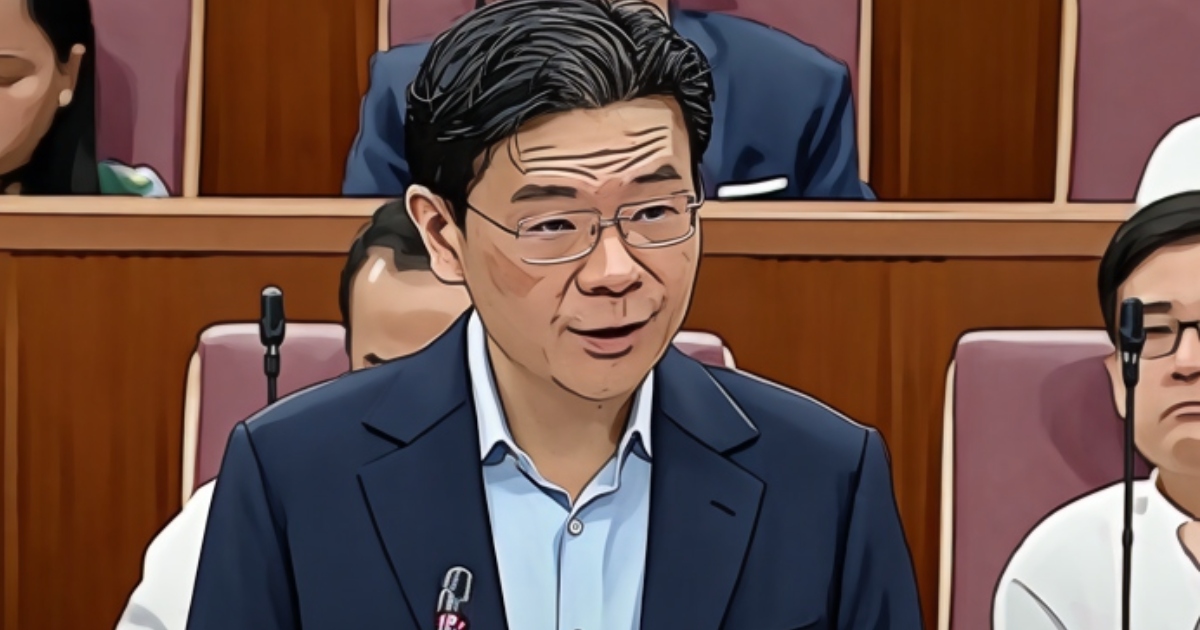Let’s face it: many of us tuned in to Budget 2025 to see what ang baos we’d be receiving.
And with 2025 marking SG60, you can bet that Cai Shen Ye Wong delivered some uplifting news that’s bound to bring tears of joy.
If you’re curious about what’s in store, read on—we’ve broken it down into several segments.
For Everyone Due to SG60 Special Package
For All Households
For Families With Children
For Seniors
For Vulnerable Families
For People With Disability
For Everyone Due to SG60 Special Package
The SG60 Special Package is a commemorative initiative celebrating Singapore’s 60th year of independence in 2025 (I know, SG50 feels like yesterday).
Every adult Singaporean will receive SG60 vouchers worth $600. For seniors aged 60 and above, they will get an additional $200, bringing their total to $800.
They will be given in July 2025, and seniors also get to claim them first.
The vouchers can be used at participating heartland merchants and hawkers. Just think of them as CDC vouchers.
In additional, a personal income tax rebate of 60% will be provided for the Year of Assessment 2025, with the rebate capped at $200.
Do you have a SG60 kid? Well, babies born in 2025 will receive a special SG60 Baby Gift.
And if you’re someone who’s always looking for an excuse not to exercise, you’ve just lost one more excuse: you’ll get a one-off $100 ActiveSG credit top-up. New members will get $200 instead.
For All Households
There will, once again, be CDC Vouchers.
CDC Vouchers valued at $800 per household will be disbursed in two phases: $500 in May 2025 and $300 in January 2026.
In addition to the CDC Vouchers, eligible HDB households will receive U-Save Rebates worth up to $760, distributed in two installments: the first payment in April 2025 and the second in October 2025.
The rebate amount is tiered according to flat type, with residents of 1-2 room flats receiving the highest rebates, those in 3-4 room flats getting moderate rebates, and families in 5-room and larger flats qualifying for lower rebate amounts.
For Families With Children
Last year, NSmen received LifeSG credits.
This year, families with children will receive them instead.
Every Singaporean child aged 0-12 receiving $500 in LifeSG credits. For children aged 1-12, these credits will be disbursed in July 2025, while 2025 newborns will receive their credits in April 2026.
Of course, since a one-year-old likely won’t head to NTUC FairPrice to buy MrBeast chocolate bars themselves, the parents will “receive” the credits instead.
Additionally, $500 education top-ups will be provided in July 2025, with children aged 13-16 receiving top-ups to their Edusave accounts and those aged 17-20 receiving contributions to their Post-Secondary Education Accounts (PSEA).
To support larger families, the government has introduced the New Large Families Scheme for households with three or more children.
Under this initiative, third and subsequent children born from 18 February 2025 (yes, that is today) will receive a $10,000 First Step Grant through their Child Development Account, along with a $5,000 Large Family MediSave Grant credited to the mother’s MediSave account, which can be used for pregnancy, delivery, and family healthcare expenses.
The Large Families Scheme also provides $1,000 annual LifeSG Credits for third and subsequent children until they reach age six, totaling $6,000 over six years.
This benefit applies to existing families with three or more children aged six and below, with the first disbursement scheduled for September 2025.
In additional, preschool support has been strengthened with reduced fee caps at both anchor operator and partner operator centers.
Monthly childcare fees will now be capped at $610 for anchor operator centers (down from $640) and $650 for partner operator preschools (down from $680).
After subsidies, dual-income families can expect to pay around $300 per child, with additional subsidies available for lower and middle-income families.
For Seniors
Budget 2025 introduced several comprehensive measures to support seniors in Singapore. At the healthcare front, a new Matched MediSave Scheme will be implemented from 2026 to 2030, targeting lower-income seniors aged 55-70.
This scheme offers dollar-for-dollar matching for voluntary MediSave top-ups up to $1,000 per year, benefiting about 184,000 CPF members.
Long-term care support has been significantly enhanced with increased subsidies across various care settings. Residential care subsidies will increase by up to 15 percentage points, with an additional 5 percentage points for those born in 1969 or earlier. Home and community care services will also see higher subsidies of up to 15 percentage points.
The qualifying household income ceiling has been raised from $3,600 to $4,800, making these subsidies accessible to more families. The Home Caregiving Grant will increase from $400 to $600 monthly starting April 2026.
Housing and accessibility improvements include the extension of the Enhancement for Active Seniors (EASE) programme to private property households until 2028. The Seniors’ Mobility and Enabling Fund will offer increased subsidies, and coverage for home healthcare items has been expanded to better support aging in place.
Financial support comes through various channels, including the SG60 Special Package which provides $600 vouchers to all Singaporeans, with an additional $200 for those aged 60 and above (as mentioned earlier), valid until 31 December 2026.
The Singapore Allowance, which some pensioners receive each month, will increase from $350 to $390 monthly, and the monthly pension ceiling will be raised to $1,320.
Employment support for seniors has also been strengthened with the extension of the Senior Employment Credit until 31 December 2026.
The qualifying age for the highest support tier has been increased to 69, with the government providing reimbursement of up to 7% of wages for workers aged 69 and above, encouraging continued employment of senior workers.
For Vulnerable Families
Starting from April 2025, ComCare assistance rates will be increased to help lower-income households better meet their basic living expenses.
The Fresh Start Housing Scheme has received a substantial boost, with the grant amount increasing from $50,000 to $75,000 for eligible families.
This enhanced scheme will now extend to first-time homebuyers from rental flats and includes the option to purchase two or three-room new flats on shorter leases, making homeownership more accessible for vulnerable families.
For People With Disability
The Matched Retirement Savings Scheme will be expanded, which will now include people with disabilities of all ages starting January 2026. This scheme provides dollar-for-dollar matching for cash top-ups to their CPF Special Account for those under 55.S
Support for adult disability services subsidies will increase by up to 15 percentage points. Those born in 1969 or earlier will receive additional long-term subsidies. To make these services more accessible, the qualifying household income ceiling has been raised to $4,800, allowing more families to benefit from these enhanced subsidies.
Caregivers have not been forgotten in this budget. Lower and middle-income caregivers who set up trust accounts with the Special Needs Trust Company will receive a dollar-for-dollar matching grant of up to $10,000.
This initiative helps caregivers better plan for their child’s future care needs while providing financial support for long-term care arrangements.
If you watch at least 10 minutes of brain rot content daily, you must know this:


Read Also:
Advertisements

